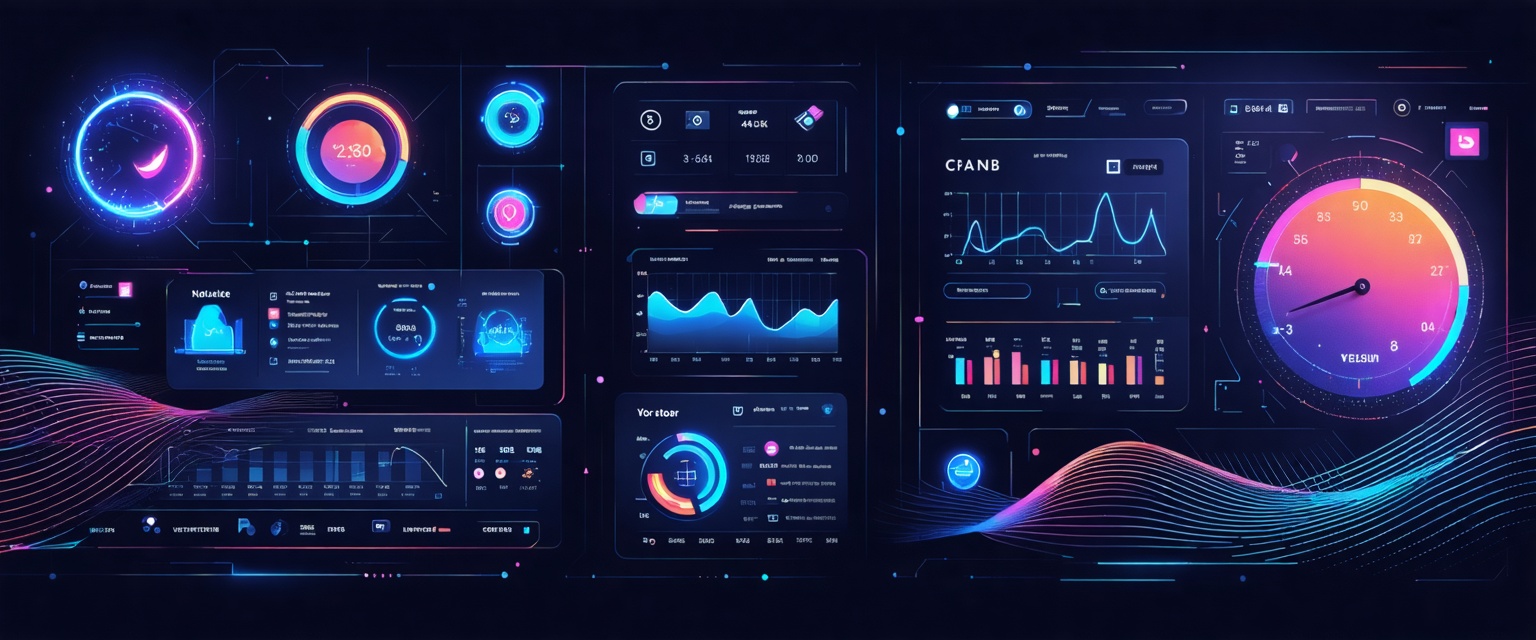Discover how AI agents streamline multi-jurisdictional legal research for paralegals, saving time and mitigating risks in complex workflows.
Real-Time Legal Code Matching: How AI Agents Help Paralegals Compare Multi-Jurisdictional Laws
Court rules, filing deadlines, and legal standards change from one jurisdiction to the next, and you're expected to track them all without missing a detail.
Every new case spanning multiple states multiplies the risk of procedural missteps, delayed filings, or conflicting research. It’s a logistical grind that drains time and focus.
Thanks to advancements in Agentic AI, it’s now becoming easier than ever to automate this work with reliable, jurisdiction-specific intelligence. Datagrid’s data connectors let AI agents plug into legal research tools and surface relevant rules in context. Let’s see how this works.
What is Multi-Jurisdictional Legal Research in Paralegal Practice
Multi-jurisdictional legal research involves navigating procedural rules, comparing conflicting legal standards, and managing discovery across courts. These three tasks form the core of paralegal workflows in cross-border cases.
Scope of Multi-System Legal Research in Paralegal Work
When cases cross geographic boundaries, you're suddenly juggling federal, state, and local laws all at once. You compare filing deadlines between district courts, spot conflicts between state statutes, and keep track of different procedural requirements across jurisdictions.
Filing deadlines in the Southern District of New York might clash with your client's obligations under California state law. What's called a "motion to dismiss" comes with completely different requirements depending on where you file.
Even courts in the same state often have dramatically different formats, citation styles, and frameworks. AI agents help by quickly analyzing these variations and providing you with the necessary information.
Case Types Requiring Cross-Jurisdictional Expertise
Class action lawsuits need you to know procedural rules across multiple federal districts and state courts.
Trademark disputes mix federal registration with varying state protections.
M&A due diligence means gathering regulatory compliance information from every state where the target company operates.
Your job includes preparing filings that satisfy multiple court rules at once, synchronizing discovery schedules across jurisdictions, and drafting settlement agreements that account for different state laws.
You gather jurisdiction-specific details that attorneys rely on for their strategy decisions. AI assistance makes these tasks more manageable and less time-consuming.
Core Components of Multi-State Legal Analysis
Your daily work involves checking each court's local procedural requirements, spotting conflicts between different laws, and formatting documents to meet jurisdiction-specific standards.
You compare how different states handle service of process, analyze varying confidentiality rules during discovery, and adapt documents to meet court-specific formatting standards.
This means verifying everything from citation formats to filing fees and making sure all procedural deadlines align across jurisdictions. AI tools enhance accuracy and efficiency in these critical tasks.
Why Paralegals Need Multi-Jurisdictional Research in Litigation
Being a skilled paralegal today means mastering multi-jurisdictional research. When cases involve multiple courts, overlapping state laws, or federal-state questions, you become the critical bridge between complex legal requirements and winning case outcomes.
Your knowledge of different jurisdictional rules directly impacts case success. Missing a filing deadline in one court might derail an entire multi-state strategy.
Each jurisdiction has its own rules for document formatting, service requirements, and discovery protocols. Mastering these differences prevents costly rejections and delays. AI tools help you stay on top of these variations.
In complex litigation, you serve as the early warning system for potential conflicts. When employment laws differ between states in a class action or discovery rules clash in multidistrict litigation, your research spots these issues before they become problems.
This gives legal teams time to adjust rather than scrambling mid-case. AI agents provide timely insights to support this critical function.
Your cross-jurisdictional skills save attorneys valuable time. When you create comprehensive jurisdiction comparison charts and identify procedural variations upfront, attorneys can focus on strategy instead of researching basic requirements.
This efficiency matters most in high-stakes cases where understanding nuanced differences prevents procedural mistakes. AI automation enhances this efficiency for better outcomes.
What Slows Down Paralegals During Cross-Border Legal Research
Cross-jurisdictional research creates critical bottlenecks for paralegals beyond mere inconvenience. When navigating multiple legal systems simultaneously, they face procedural inconsistencies, conflicting standards, and incompatible discovery rules.
Tracking Procedural Variations Across Multiple Court Systems
Each court system operates with unique filing rules, deadlines, and requirements. Paralegals spend hours visiting individual court websites, downloading rulebooks, and calling court clerks to clarify confusing procedures.
One federal district might require specific metadata in electronic filings while another has completely different technical specifications. Court websites often organize critical information inconsistently, creating a frustrating treasure hunt through disparate layouts.
Courts frequently change their rules without standardized notification systems. This can result in rejected filings or missed deadlines when documents are prepared using outdated requirements, potentially damaging client relationships and case outcomes.
Managing Conflicting Legal Standards Research
Comparing contradictory legal standards across jurisdictions consumes extensive time. Paralegals must manually compare how employment laws differ between states, analyze variations in consumer protection standards, or determine which jurisdiction's contract principles apply.
The process requires reading extensive case law and statutory language from multiple jurisdictions, then creating detailed comparison charts highlighting differences in legal approaches.
Paralegals must verify the current validity of primary sources and ensure they haven't missed recent amendments or court decisions that could affect their analysis, a process that can take days for complex legal questions where jurisdictions have taken divergent approaches.
Coordinating Discovery Rules Across State Lines
Different document production rules and deposition procedures across states complicate paralegal workflows. One state might allow certain evidence requests while another prohibits them completely.
E-discovery presents particular challenges with varying requirements for file formats, production timelines, and confidentiality protections across jurisdictions.
Paralegals must coordinate discovery requests that comply with different privacy laws, redaction standards, and conflicting rules about privileged information. Missing jurisdiction-specific requirements or formatting documents incorrectly can lead to sanctions, rejected filings, or compromised case strategies that harm outcomes.
How AI Agents Transform Multi-Jurisdictional Legal Research Workflows
Multi-jurisdictional legal research traditionally requires extensive manual database searches and rule comparisons. AI agents now automate coordination across different legal systems, streamlining everything from jurisdiction identification to managing conflicting procedural requirements.
Automated Jurisdiction Identification
AI agents scan legal databases and pull relevant laws from multiple jurisdictions simultaneously. Instead of manually determining court authority, AI examines case facts, party locations, and legal issues to identify all relevant jurisdictions.
For class actions spanning multiple states, AI analyzes complaint details, defendant operations, and affected parties to identify applicable federal jurisdiction.
The technology also flags state-specific consumer protection laws, local court rules, and regulatory frameworks that might impact litigation strategy.
AI agents automate complex screening processes, similar to how they automate the process of investment property screening in real estate.
Real-Time Legal Standard Comparison
AI creates side-by-side comparisons of legal differences, eliminating the need to research each jurisdiction separately. Tools like Quick Compare display how different states handle identical legal questions.
Natural language processing extracts key standards from legislation and precedent, highlighting variations in consumer protection or employment regulations between jurisdictions.
This technology reduces research time from days to hours while minimizing the risk of overlooking critical jurisdictional differences.
By automating these comparative processes, AI agents provide efficiencies similar to those achieved when businesses automate the newsletter creation process.
Smart Deadline Management Across Courts
AI agents track filing calendars and procedural rules across different court systems and synchronize with your scheduling tools to prevent missed deadlines.
In multidistrict litigation, these tools monitor staggered discovery deadlines and varying motion schedules.
The technology also identifies potential conflicts between different jurisdictional requirements, alerting legal teams to issues before they become problems.
When managing cases in several jurisdictions, AI adjusts timelines based on each court's specific rules and calendar constraints.
Intelligent Document Template Generation
AI creates document templates tailored to specific court formatting requirements and procedural language. Citation styles, section structures, and terminology adjust based on jurisdiction, ensuring compliance filings.
Machine learning improves these templates by studying successful filings and incorporating court-specific requirements.
This automation helps legal teams avoid rejections due to formatting errors or procedural non-compliance, a common issue when working across multiple jurisdictions. Similar to how AI can streamline the sales proposal creation process in other industries, it significantly enhances efficiency in legal document preparation.
Cross-Border Discovery Coordination
AI generates compliant discovery requests for multiple jurisdictions simultaneously, handling complex privacy requirements and conflicting procedural rules.
For international matters, AI navigates differences between European privacy protections and U.S. discovery rules, suggesting redaction strategies that satisfy all applicable jurisdictions.
These tools reconcile conflicting rules with minimal manual review, ensuring discovery processes meet the strictest requirements while maximizing information gathering within legal boundaries.
Datagrid for Legal Professionals
Attorneys drown in document overload daily—reviewing thousands of case files while racing against court deadlines and billable hour targets. This documentation burden steals precious time from strategic legal work and client service. Datagrid's AI platform specifically addresses this challenge by automating document-intensive tasks.
Intelligent Document Review
AI agents process thousands of legal documents simultaneously, extracting key clauses, obligations, dates, and parties from contracts, case files, and discovery materials.
The system analyzes data from diverse legal sources with greater accuracy than manual review, reducing human error.
Your legal team can redirect their expertise to strategic analysis and complex legal reasoning instead of document sorting.
Case Research Enhancement
Datagrid's AI analyzes case law, statutes, and legal precedents across multiple jurisdictions simultaneously.
The platform identifies relevant authorities and legal arguments specifically tailored to your current matters.
Due Diligence Acceleration
The platform streamlines M&A and transaction workflows through automated document review and categorization.
AI agents methodically process corporate documents, identify potential risks, and generate comprehensive summary reports.
These reports highlight critical issues requiring attorney attention, improving analysis thoroughness while reducing review time.
Contract Management Automation
Datagrid extracts critical terms, renewal dates, and obligations from your entire contract portfolio automatically.
This capability enables proactive deadline management and compliance monitoring without constant manual oversight.
The system prevents missed contractual deadlines and keeps clients compliant with their obligations.
eDiscovery Optimization
AI agents pre-screen documents for relevance, privilege, and confidential information before attorney review begins.
Your team can focus on analyzing truly relevant documents rather than sorting through irrelevant material.
Legal Brief Preparation
The platform accelerates brief writing by analyzing past filings, court decisions, and opposing counsel arguments.
Comprehensive research summaries help you build stronger cases with less preparation time.
This assistance allows for more efficient argument development and stronger legal positions by automating repetitive tasks.
Compliance Monitoring
AI agents continuously scan for regulatory changes and compare updates against your clients' practices or corporate policies.
This proactive approach identifies potential compliance issues before they become problematic.
Your team gains valuable time to implement necessary adjustments before regulatory deadlines.
Security and Data Protection
Enhanced security protocols protect sensitive client data throughout all automated processes.
The platform incorporates multiple security layers, including encryption, access controls, and audit trails.
This comprehensive approach meets the strictest client confidentiality requirements while enabling AI assistance.
Simplify Legal Tasks with Datagrid's Agentic AI
Don't let data complexity slow down your team. Datagrid's AI-powered platform is designed specifically for teams who want to:
- Automate tedious data tasks
- Reduce manual processing time
- Gain actionable insights instantly
- Improve team productivity
See how Datagrid can help you increase process efficiency.













